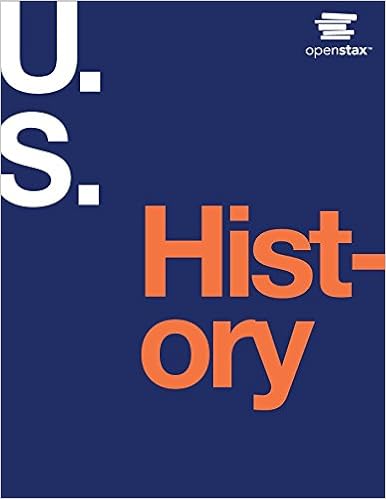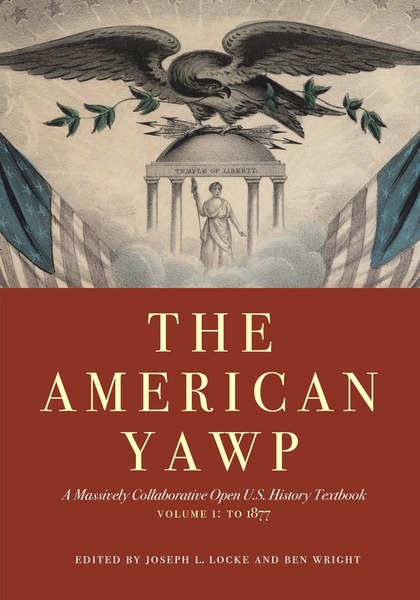
World History: Cultures, States, and Societies to 1500 by Eugene Berger (2016): Galileo
World History: Cultures, States, and Societies to 1500 offers a comprehensive introduction to the history of humankind from prehistory to 1500. Authored by six USG faculty members with advance degrees in History, this textbook offers up-to-date original scholarship. It covers such cultures, states, and societies as Ancient Mesopotamia, Ancient Israel, Dynastic Egypt, India's Classical Age, the Dynasties of China, Archaic Greece, the Roman Empire, Islam, Medieval Africa, the Americas, and the Khanates of Central Asia. It includes 350 high-quality images and maps, chronologies, and learning questions to help guide student learning. Its digital nature allows students to follow links to applicable sources and videos, expanding their educational experience beyond the textbook. It provides a new and free alternative to traditional textbooks, making World History an invaluable resource in our modern age of technology and advancement.
 Western Civilization by Various Authors (2018): Boundless.
Western Civilization by Various Authors (2018): Boundless.
The word history comes ultimately from Ancient Greek historía, meaning “inquiry,” “knowledge from inquiry,” or “judge.” However, the question of what kind of inquiries historians pose, what knowledge they seek, and how they interpret the evidence that they find remains controversial. Historians draw conclusions from past approaches to history, but in the end, they always write in the context of their own time, current dominant ideas of how to interpret the past, and even subjective viewpoints. Furthermore, current events and developments often trigger which past events, historical periods, or geographical regions are seen as critical and thus should be investigated. Finally, historical studies are designed to provide specific lessons for societies today. In the words of Benedetto Croce, Italian philosopher and historian, “All history is contemporary history.”
 U.S. History by P. Scott Corbett et al. (2020): Openstax.
U.S. History by P. Scott Corbett et al. (2020): Openstax.
U.S. History is designed to meet the scope and sequence requirements of most introductory courses. The text provides a balanced approach to U.S. history, considering the people, events, and ideas that have shaped the United States from both the top down (politics, economics, diplomacy) and bottom up (eyewitness accounts, lived experience). U.S. History covers key forces that form the American experience, with particular attention to issues of race, class, and gender.
 American Yawp by Joseph Locke (2020): Stanford University Press
American Yawp by Joseph Locke (2020): Stanford University Press
Many American history textbooks struggle to encapsulate American history. Some organize around themes—The American Promise, The Story of American Freedom—while others surrender to the impossibility of synthesis and retreat toward generality—America’s History, The American People. But in the oft-cited lines of the American poet Walt Whitman we find as good an organizing principle as any other: “I too am not a bit tamed—I too am untranslatable,” he wrote, “I sound my barbaric yawp over the roofs of the world.” Long before Whitman and long after, Americans have sung something collectively amid the deafening roar of their many individual voices. Here we find both, chorus and cacophony, together, as one. Always free, always open, this textbook offers the story of that barbaric, untranslatable American yawp.
 History in the Making: A History of the People of the United States of America to 1877 by Catherine Locks, et al.
History in the Making: A History of the People of the United States of America to 1877 by Catherine Locks, et al.
(2013): University Press of North Georgia.
This textbook examines U.S. History from before European Contact through Reconstruction, while focusing on the people and their history.Prior to its publication, History in the Making underwent a rigorous double blind peer review, a process that involved over thirty scholars who reviewed the materially carefully, objectively, and candidly in order to ensure not only its scholarly integrity but also its high standard of quality.This book provides a strong emphasis on critical thinking about US History by providing several key features in each chapter. Learning Objectives at the beginning of each chapter help students to understand what they will learn in each chapter. Before You Move On sections at the end of each main section are designed to encourage students to reflect on important concepts and test their knowledge as they read. In addition, each chapter includes Critical Thinking Exercises that ask the student to deeply explore chapter content, Key Terms, and a Chronology of events.
World History in the Early Modern and Modern Eras 1600-Present (Saylor)
This course will present a comparative overview of world history from the 17th century to the present era. You will examine the origins of major economic, political, social, cultural, and technological trends of the past 400 years and explore the impact of these trends on world societies. This course will be structured chronologically and thematically, with each unit focusing on a significant historical subject. The units will include representative primary-source documents and images that illustrate important overarching themes, such as the emergence of modern nation-states, the economic and technological interactions between Western and non-Western peoples, the changing social and cultural perceptions about religion and the state, and the development of physical and virtual networks of information exchange.
In 1970, the Chinese leader Zhou Enlai was asked to assess the outcome of the French Revolution of 1789. He responded that it was "too soon to say". While this story has questionable authenticity, it captures a fundamental truth about how revolution has shaped our world. Their legacies are difficult to evaluate.
In this course, we study some of the most important political revolutions that took place between the 17th century and today. We explore the causes of each revolution, analyze the ideologies that inspired the revolutionaries, examine revolutionary uses of violence, and consider how historical revolutions still shape contemporary politics. Close and critical readings of historical sources are critical to this process.
Global Perspectives on Industrialization (Saylor)
This course will focus on the emergence and evolution of industrial societies around the world. We will begin by comparing the legacies of industry in ancient and early modern Europe and Asia and examining the agricultural and commercial advances that laid the groundwork for the Industrial Revolution of the 18th and 19th centuries. We will then follow the history of industrialization in different parts of the world, taking a close look at the economic, social, and environmental effects of industrialization. The course is organized chronologically and thematically. Each unit will focus on key developments in the history of industry as well as on representative areas of the globe, using primary-source documents, secondary readings, and multimedia resources to illustrate the dynamic nature of industrial change. By the end of the course, you will understand how industrialization developed, spread across the globe, and shaped everyday life in the modern era.
World History (Boundless/Lumen)
This catalog contains educational content originally curated by Boundless. In collaboration with the Boundless team, Lumen Learning imported these OER courses to the Lumen Platform, to ensure they remain freely available to the education community after Boundless ceased operations. Lumen maintains the Boundless content in the same condition it was provided to us. Please note, courses may contain issues with formatting, accessibility, and the degree to which content remains current, accurate, and complete.
U.S. History: Reconstruction to the Present (Lumen)
Few times in U.S. history have been as turbulent and transformative as the Civil War and the twelve years that followed. Between 1865 and 1877, one president was murdered and another impeached. The Constitution underwent major revision with the addition of three amendments. The effort to impose Union control and create equality in the defeated South ignited a fierce backlash as various terrorist and vigilante organizations, most notably the Ku Klux Klan, battled to maintain a pre–Civil War society in which whites held complete power. These groups unleashed a wave of violence, including lynching and arson, aimed at freed blacks and their white supporters. Historians refer to this era as Reconstruction, when an effort to remake the South faltered and ultimately failed.
Introduction to Ancient Greek History (Open Yale)
This is an introductory course in Greek history tracing the development of Greek civilization as manifested in political, intellectual, and creative achievements from the Bronze Age to the end of the classical period. Students read original sources in translation as well as the works of modern scholars.
American History (Sage)
Digital Public Library of America (DPLA)
History Bookshelf (LibreTexts)
History Course List (MIT OpenCourseWare)
History Courses (Open Yale)
Primary Historical Documents Collection (Yale)
Research Writing (UMN Open Textbook Library)
U.S. History Textbooks (ushistory.org)